

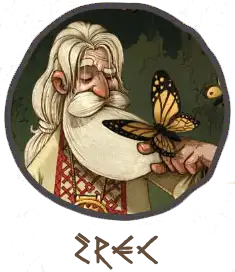
"The children disappeared. We have no choice but to try and save them."
Fellow villager,
All your life you have been told to stay out of the forest. The beings that live inside don't like their peace disturbed. Their protector, the mighty god Radgost, won't hesitate to wield his power against mortal intruders.
But as I said at the last village council meeting — now is not the time for thinking. The children disappeared. We have no choice but to try and save them.
Nothing I tell you will prepare you for what you'll encounter on this quest.
All I can offer is my modest knowledge of some of the forest's mysteries and magical places:
Fairy ring
Fairy rings are sites where fairies gather and dance and sing. Usually located in some deep forest and at a vast distance from any humans. Fairy rings are dangerous places for humans, best avoided. People who trespass into forbidden territory will be punished.
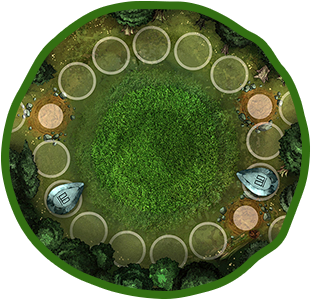
Watermill
A watermill is a useful yet dangerous place for humans, a site where corn was transformed to flour by day and where evil creatures gather by night. And different magic and horror things can happen. There was a belief that even the water around the watermill has magic properties, especially dangerous place to spend the night in.
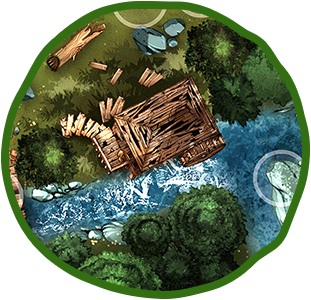

Gradište
A deserted holy place. Formerly it was used to offer sacrifices to gods, before the mythical creatures inhabited the forest, and before it became a forbidden place for humans. It's also a place where some magic encounters and scenarios will be resolved. In Slavic mythology: a place where sacrifice has been offered to gods and important matters has been discussed and resolved among the men.

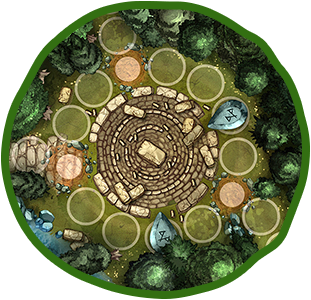
Bridges
Magical sites protected and inhabited with various perilous creatures in the night. Bridges bind two banks but often can be a dangerous and deadly place to dwell upon, especially by night. In some Slavic myths, even the land of the dead is connected with the land of the living by a bridge and that bridge is guarded by a dragon.
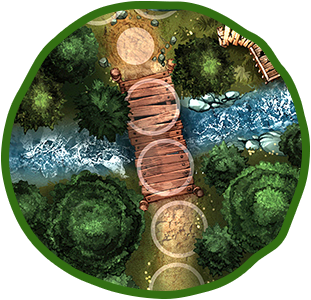

Ivan's call
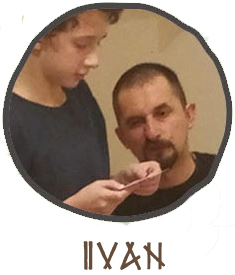
"To my pagan Slavic ancestors, the entrance into a forest represented a boundary. Crossing it meant giving up the shelter of your home and village."
Fellow boardgamer,
When I was a kid, walking in the woods made the hairs on the back of my neck prickle.
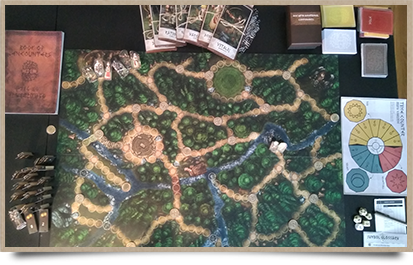

I can recall it now:
A wisp of wind whispering in my ear. Leaves rustling. And then a sudden snap of a twig.
To my pagan Slavic ancestors, the entrance into a forest represented a boundary. Crossing it meant giving up the shelter of your home and village. On the other side you were exposed to unknown, perhaps hostile forces.
That's why Slavic people imbued everything in the forest with mythical significance.
From man-made structures like bridges and watermills, to mysterious caves and secluded forest clearings.
The Forest of Radgost game board is littered with such details. Only some of them were shown here. By playing the game you will experience just how strange and unsettling the forest was to our pagan ancestors.
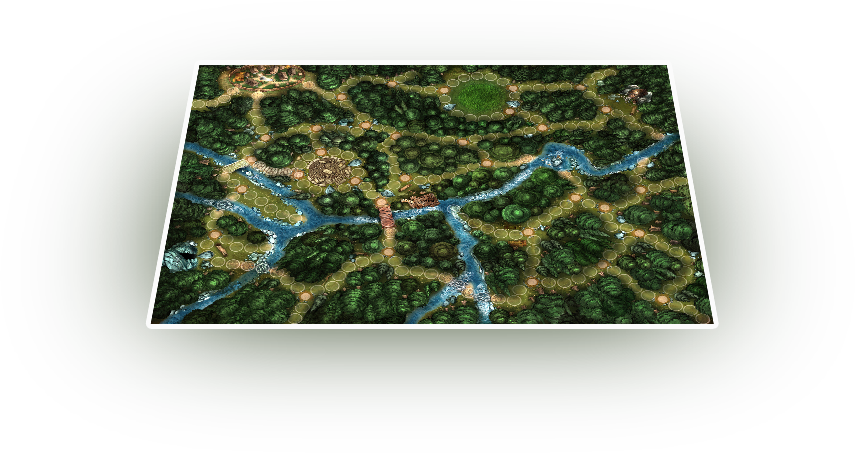
It's still not too late to join the tribe.
Forest of Radgost began as a family project.
In the end, it took a whole tribe of board gamers, sculptors and painters, scholars and writers, and 3003 Kickstarter backers to shape the game.
And we are still growing -- you still have a chance to join our tribe.


